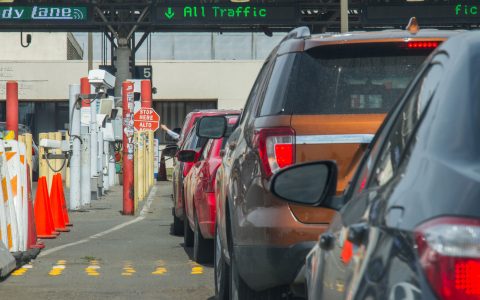In late August, the Korean Customs Service, via The Korea Times, released the following statement regarding cannabis legalization in Canada:
“It will still be illegal for Koreans to smoke marijuana in Canada or anywhere else. Koreans who return here after using the drug could face criminal charges.”
This week, they doubled down.
“Weed smokers will be punished according to the Korean law, even if they did so in countries where smoking marijuana is legal. There won’t be an exception,” Yoon Se-jin, head of the Narcotics Crime Investigation Division at Gyeonggi Nambu Provincial Police Agency, said according to The Korea Times.
This is troubling news for the nearly 250,000 Korean Canadians that now call the second country in the world to legalize cannabis home, and opens up question about the hundreds of thousands of Canadians that come from other countries with punitive approaches to cannabis. What happens at those borders? What kind of security do Canadians have?
None, it turns out. The Canadian government has said there is little they can do to intervene.
“Each country or territory decides who can enter or exit through its borders,” Richard Walker, a spokesperson with Global Affairs Canada, said in an email to Leafly. “The Government of Canada cannot intervene on your behalf if you do not meet your destination’s entry or exit requirements.”
Yoon Se-jin, Gyeonggi Nambu Provincial Police Agency
Many Asian and Middle East countries have severe laws for even small amounts of cannabis. In Indonesia, for example, those who are found to be in possession of cannabis face a minimum of four years in prison. In Singapore, those who are caught with 500 grams of cannabis or more are presumed drug traffickers and could face the death penalty. In Malaysia, possession of 200 grams of cannabis is enough to be deemed a drug trafficker, which comes with a mandatory death penalty.
“Canadians who wish to enter any country, must adhere to all national and local laws when attempting to gain entry to that country,” Walker said. “Canada remains a strong supporter of the international drug control framework and will continue working with our international partners to advance the objectives of the drug control framework including through efforts to combat drug trafficking and to promote evidence-based solutions to mitigate the harms of problematic substance use.”
Know the Law
Walker points toward the government’s travel advisory page as a resource for travellers. Ultimately, it’s up to each individual to do their own research and take their own precautions when traveling abroad. “Travellers are responsible for learning about the laws of the countries they intend to visit,” he said.
The travel advisories are updated often. Currently, for South Korea, the Canadian government warns:
“Penalties for possession, use or trafficking of illegal drugs are strict. Convicted offenders can expect long jail sentences, heavy fines and deportation. Minor violations, including smoking minute quantities of an illegal drug, such as marijuana, in a private home, can lead to detention even before the trial has begun.”
For Saudia Arabia,
“Saudi authorities [practice] zero tolerance and make no distinction between alcohol and soft or hard drugs. Drug offenders may be sentenced to corporeal punishment or death.”
For Slovakia, where the possession of a single joint can land you eight years in prison,
“Penalties for possession, use or trafficking of illegal drugs are severe. Convicted offenders can expect lengthy jail sentences.”
Despite attitudes toward cannabis evolving around the globe, these warnings are a reminder that life imprisonment and the death penalty, in the most severe cases, are still deemed appropriate for cannabis use.
It remains to be seen how Korea will monitor and enforce its laws when its citizens are engaging in activity deemed legal in a foreign country, but the Korean Customs Service has said they will increase the inspections of packages and passengers arriving from Canada, as well as their belongings.
Other countries, like Russia, and international organizations, like the United Nations, have also expressed frustration with Canada legalization efforts. In June, the United Nations Office on Drugs and Crime (UNODC) issued the following statement:
“UNODC regrets the Canadian legislature’s decision to legalize cannabis for non-medical use. This decision contravenes the provisions of the drug control conventions, and undermines the international legal drug control framework and respect for the rules-based international order.”
“From an international perspective, the Government of Canada has been clear that its decision to legalize, strictly regulate, and restrict access to cannabis is a domestic response to health and safety challenges in Canada,” Walker said. “Canada does not advocate for cannabis legalization and regulation as a solution for other states. Additionally, Canada has no plans to legalize any other illicit drugs. The illegal movement of cannabis and cannabis products across international borders will remain a serious criminal offense in Canada, as it is today.”





